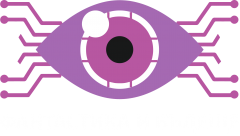The Power of Imagination: New Approach to Charles Peirce’s Abduction
Reni Yankova
The full article had been published in the “14th World Congress of Semiotics – Proceedings”, Argentina, 2019
Rene Descartes’ approach to philosophy and science laid the foundations of modern Western thinking. In 1637 an anonymous book was published in French entitled A Discourse on the Method of Correctly Conducting One’s Reason and Seeking Truth and a few years later the Meditations on First Philosophy (1641) appeared. The two books were considered manifestos for modern Rationalism because they set a new scientific program in philosophy and science. In his writings “the light of reason” became the guiding principle that should lead the scientific man along his path towards truth and infallible knowledge. Descartes’ method of universal doubt brings a significant change dissociating itself from the classical (Aristotelian) approach to knowledge based on the sensual experience of the outer reality. Here the emphasis has been put on the rational operations and logical mediation in reason. Senses and imagination are considered as corrupted sources of information and philosophical premises.
The matter of interest here is how Descartes treats imagination and to what place has been given this faculty of the mind. In A Discourse on the Method, the problem is discussed briefly, but clear and unambiguously. Unable to reject the existence and the participation of imagination in the cognitive process, Descartes classifies it as a faculty of false knowledge, delusion and opposes it to the real knowledge achieved by logical reasoning. The main threat seen in imagination is its ability to produce clear and distinctive ideas in the mind without giving proof for their real existence. For example, in our dreams, we may see, hear and even feel different things and they may influence our thoughts and actions after waking up but this is not making them real. And if people give themselves ideas they got from dreams or imaginative situations, they will certainly fall into delusion and will never achieve true and infallible knowledge. Descartes considers imagination as being deprived of intellectual power which leads to its ban from philosophical and scientific reasoning:
It seems to me that people who wish to use their imagination in order to understand these ideas are doing the same as if, in order to hear sounds or smell smells, they tried to use their eyes. Except that there is this further difference, that the sense of sight no more confirms to us the reality of things than that of smell or hearing, whereas neither our imagination nor our senses could ever confirm the existence of anything if our intellect did not play its part (Descartes 2006: 32).
The mind-body opposition in Descartes writings is one of the most commented on and well-examined issues within his philosophy. What is barely discussed, but significant in the history of philosophy for me, is the reason-imagination opposition? Presenting the faculty of reasoning as a divine sparkle given to human beings, Descartes brings the opposition to a metaphysical level. If the reason is divine and has the capability to lead us towards the ultimate truth, is the imagination diabolic and capable only of misleading? The philosopher does not put this contradiction openly because it sounds less scientific and more like a medieval prejudice but his notion could be comprehended from the sharp denial of imagination.
“For after all, whether we are awake or asleep, we ought never to let ourselves be convinced except on the evidence of our reason. And it is to be noted that I say ‘our reason’, and not ‘our imagination’ or ‘our senses’. For although we see the sun very clearly, we should not on that account judge that it is only as large as we see it; and we can well imagine the head of a lion grafted onto the body of a goat, without having necessarily to conclude from this that a chimaera exists in the world; for reason does not dictate to us that what we see or imagine in this way is true. But it does certainly dictate that all our ideas or notions must have some foundation in truth; for it would not otherwise be possible that God, who is all-perfect and altogether true, should have placed them in us unless it were so” (Descartes 2006: 34).
Despite his sceptical view about imagination, Descartes outlines one of its most significant characteristics: namely that the imagination is a functional entity of mind. It relates to ideas that already exist and correspond to something real. The imagination can’t produce new ideas but it is capable to relate existing ideas in a new manner which has been well illustrated in Descartes’ example of the lion with a body of a goat. Unfortunately, imaginative ideas are groundless in philosophy and metaphysics. Their only scope of functional application is mathematics: “the part of the mind which is of most use in mathematics, namely the imagination, is more of a hindrance than a help in metaphysical speculation” (Descartes 2006: 70), wrote Descartes in a letter to his friend Mersenne on 13 November 1639.
In his writings, Descartes clearly states the difference between imagination and understanding: imagining takes more effort than understanding, but at the same time it is less fruitful because of the lack of reliability of its ideas. This makes imagination non-essential for the scientific man, while understanding is: I cannot be me (a thinking thing) without understanding, but I can be me without imagination. Descartes’ argument here is totally subordinated to his rationalistic philosophical view. His idea of imagination as a dysfunctional faculty of mind, which is able to produce only vague and delusional ideas in the mind, deprived that phenomenon of a strong philosophical interest through the following centuries.
